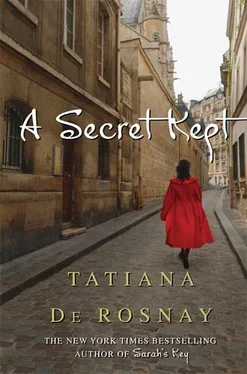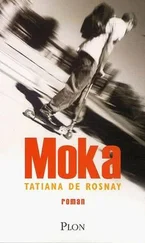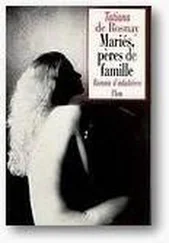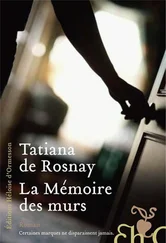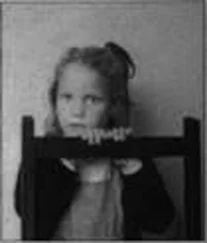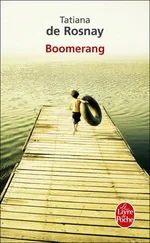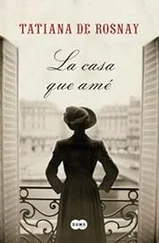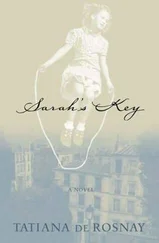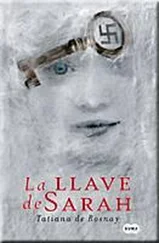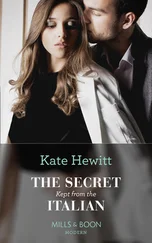I smile, thinking of Angèle’s smooth, creamy thighs. I’m not quite sure when I will be seeing her again, but the anxious wait somehow makes it all the more exciting. We talk on the phone every day, several times a day, and there are texts and e-mails as well, and in the evenings I can see her naked on my webcam, locking myself up in my bedroom like a guilty teenager. I more or less admit to my sister that I’m having a long-distance online relationship with a terrifically sexy mortician.
“Wow,” she breathes. “Eros and Thanatos. What a Freudian brew. When can I meet this lady?”
I say I don’t even know when I will be seeing her properly again. After a while, the webcam excitement will wear off, I am sure, and I will need to touch her in the flesh, to have her. To really have her. I don’t say this to Mélanie in those exact terms, but she gets my drift.
Later, in a particularly bold text message, I admit this to Angèle. I get an instantaneous text message from her with the schedule of the next train from Montparnasse to Nantes. I can’t make that train because of an important meeting for a new contract. Bank offices to be built in the twelfth arrondissement, near Bercy. Another tedious job, but yet again nothing I can afford to turn down.
My yearning for Angèle thrives day after day. The next time I see her, I know it will be like fireworks. And just thinking about that keeps me going.

Down in my cellar one evening in October, I come across a treasure. I am looking for a good bottle of wine to offer to Hélène, Emmanuel, and Didier at dinner, something they’d like and remember. But instead of coming back up with a bottle of Croizet-Bages, I triumphantly traipse upstairs with an old photo album. I didn’t even remember that I had it. It was stuck in a cardboard box I hadn’t bothered to open since the divorce, lost in a heap of report cards, maps, crumpled pillowcases, and moldy Disney beach towels. I fell upon it. How has this ended up in my possession, and how is it that I had no recollection of it? Old black-and-white photographs of Mélanie and me. My first Communion. Seven years old. Long white robe. Serious face. New watch on my proud wrist. Mélanie at four, plump cheeks and frilly smocked dress. The get-together at the avenue Henri-Martin apartment. Champagne, orange juice, and macarons from the nearby tearoom Carette. My grandparents gazing down at me benignly. Solange. My father. My mother. I have to sit down. There she is. Dark hair. Lovely smile. Her hand on my shoulder. So young. She had only three more years to live. It is difficult to believe, looking at that photograph. She is the very image of youth.
I turn the pages slowly, taking care not to get cigarette ash on them. They are musty from their stay in the cellar. Noirmoutier. The last summer, 1973. My mother must have stuck all these photos into this album, I realize. This is her handwriting, round and childish. I can almost see her, sitting at her desk at avenue Kléber, bent over the pages, concentrating. Glue and scissors. The special pen that wrote on black paper. Mélanie standing on the Gois at low tide with her shovel and pail. Solange smoking a cigarette and posing on the pier. Did my mother take these photos? Did she have a camera? I can’t remember. Mélanie on the pier at the beach. Me in front of the casino. My father basking in the sun. All of us on the hotel terrace. Who took that one? I wonder. Bernadette? Another waitress? The perfect Rey family at their very best.
I close the album. As I do so, something white comes fluttering out of it. I bend to the floor to pick it up. It is an old boarding pass. I stare at it, perplexed. A flight to Biarritz back in the spring of 1989. In Astrid’s maiden name. Of course. This is the flight I’d met Astrid on. She was attending a friend’s wedding and I was renovating offices in a new mall for the architect I worked for. I remember being secretly thrilled that such a pretty young woman was seated next to me.
She had a wholesome, outdoor Scandinavian look that immediately appealed to me. This was not your manicured, mincing Parisian. During the flight I racked my brains for something to say, but she had a Walkman clamped to her ears and appeared to be riveted by Elle magazine. The landing became suddenly atrociously bumpy. It seemed we had arrived in the Basque country as the mother of all storms was brewing. The pilot attempted to land the plane twice before backing off each time, engines whining and shuddering. Winds howled around us, and the sky blackened to an inky dusk although it was only two in the afternoon. Astrid and I exchanged apprehensive smiles. The plane wobbled to and fro, wrenching our guts mercilessly with each swoop.
The bearded man sitting across the aisle seemed to have turned green. With a neat gesture he reached for the paper bag tucked into the seat pocket, opened it deftly, and, with a monstrous, greasy belch, threw up into it for what seemed to be an eternity. A sour stench of garlic and vomit wafted toward Astrid and me. She glanced at me helplessly. I could tell she was scared. I was not. What frightened me was not the chance that we might crash, but that I might spew my spaghetti bolognaise over this beautiful girl’s knees. All we could hear was the sound of passengers being sick. As the plane spun dizzyingly round and round and I fought with all my might not to look at the bearded man, who had now filled a second bag with purple puke, her trembling hand came creeping into mine.
That was how I met my wife. And the fact that she had kept that ticket for all those years warmed my heart. The fifteen years between my mother’s death and Astrid seem like a blur, a drive down a dark tunnel. I don’t like thinking about those years. I was like a field horse with blinders, overcome by a frozen loneliness that ate at me, that I could not get rid of. Once I left the avenue Kléber and went to live on the Left Bank with two fellow students, my existence seemed slightly less dreary. There had been a girlfriend or two, trips abroad, discovering Asia, America. But when Astrid came into my life, all of a sudden there was light. And happiness. And laughter. And joy.
When my marriage broke down, when it finally hit me that Astrid no longer loved me, that she loved him, Serge, the bottom fell out of my world. I was back in the long, dark tunnel. Fragments of my life with Astrid came whirling back to me in my dreams and during the day. As we moved relentlessly toward the divorce, I incredulous, she determined, I frantically grasped at every memory I had to keep me going. One kept coming back to haunt me. Our first trip together as a couple. San Francisco. We were all of twenty-six, the year before Arno was born. We were young and carefree, as they say. Madly in love. There is a flock of memories I can conjure from that trip-driving across the Golden Gate in a convertible with Astrid’s hair blowing into my face, the little hotel in Pacific Heights where we made love with mad frenzy, the riotous rides in cable cars.
But it is Alcatraz that comes back to me. We had taken a boat to visit the island and were given a guided tour. You could glimpse the city in all its glittering, hilly glory, barely three kilometers away, across cold and treacherous water. So close, yet so far away. Because the sun came pouring through the windows, the cells on “Seedy Block” were the desirable ones. The prisoners preferred being on this side, explained the guide. These cells were warmer, less chilly, even on cold winter nights. And on some nights, he went on, like on New Year’s Eve, for instance, if the wind was coming from the right direction, the prisoners could hear the sound of parties drifting in from the St. Francis Yacht Club across the bay.
Читать дальше
